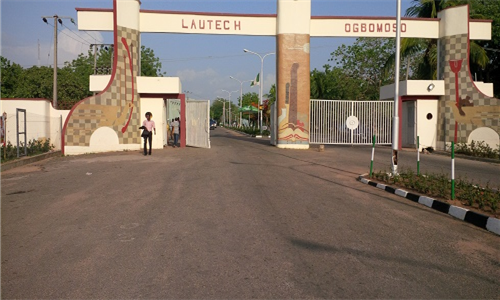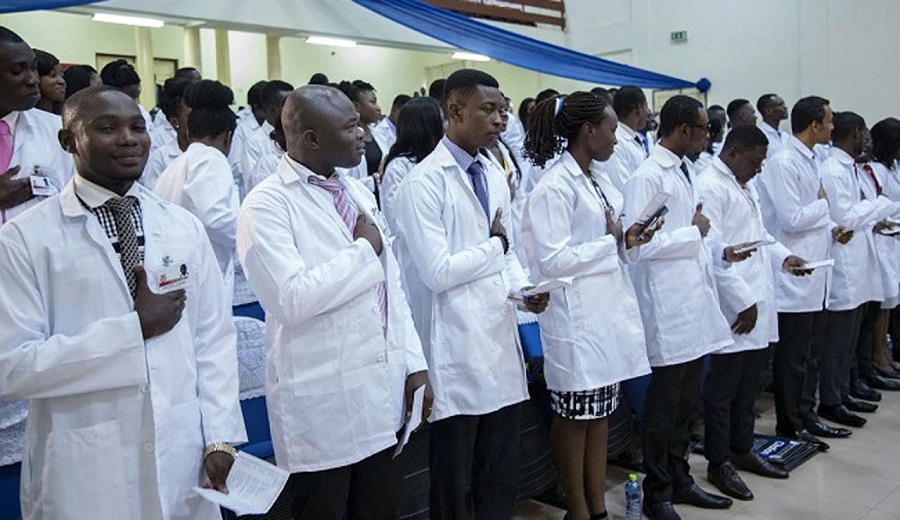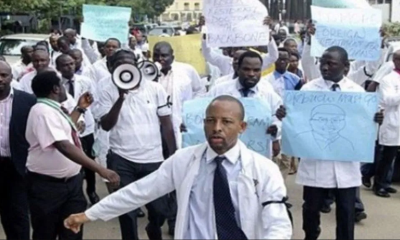Association of Resident Doctors (ARD), Ladoke Akintola University of Technology (LAUTECH) Teaching Hospital, Ogbomosho has demanded the implementation of adopted benefits in Federal Tertiary Health Institutions(FTHIs).
In a statement jointly signed by its President, Dr Sope Orugun and General Secretary, Dr Stanley Nnara, the association appealed to Gov. Seyi Makinde of Oyo state for quick intervention.
It said that a quick implementation of these benefits and others would mitigate further emigration of healthcare workers out of the state.
The News Agency of Nigeria reports that the doctors had called for the domestication of Medical Residency Training Act (MRTA) and implementation of Medical Residency Training Fund (MRTF) in the state.
The doctors have attributed the migration of health workers from State Tertiary Health Institutions (STHIs) to FTHIs to the disparity between both Institutions in terms of benefits and conditions of service.
NAN reports that the doctors also demanded increased subvention to LAUTECH teaching hospital, offset of salary arrears owed their members and upward review of the Hazard Allowance in Oyo State as it obtained in FTHIs.
The ARD said that part of the issues addressed during Gov. Seyi Makinde’s visit on August 15, 2020 was the domestication of MRTA which caters for the regulation and funding of residency training programme in Nigeria.
It described MRTA as an Act guiding medical residency training programmes in Nigeria, saying it guarantees resident doctors yearly funds for training and retraining.
The association said that the act had been well implemented at the federal level since it was passed into law in 2017 and the amount for MRTF presently being reviewed upwards.
The ARD expressed displeasure that most Nigerian states, including Oyo state, were yet to adopt or effect the MRTA or MRTF.
“As a responsible association, we have engaged all organs of this current administration in a bid to right this wrong.
“However this has proven difficult in the last one year, as we were only, just recently, able to hand over the Oyo State draft of the Bill for MRTA to the governor personally,” it said.
It said that they have handed the bill to the governor on Dec. 1 during his Ogbomosho Town Hall meeting, hoping that he would expedite assent to the bill.
“A quick implementation of these benefits in Oyo state as adopted at the FTHIs and some states will reduce this disparity and mitigate further emigration of Healthcare workers, particularly Doctors, out of our dear state,” it said.
The association called for urgent upward review of the hazard allowance in Oyo State if they would compete for the services of the fast reducing professionals in the national labour market.
The ARD described the payment of the new hazard allowance by Federal Government to Health workers as a step in the right direction, imploring the state government to ensure such in the state.
It said that there was need to improve on the subvention allocated to LAUTECH teaching hospital to enable the hospital recruit to capacity, adding that the hospital presently run on half of its capacity for clinical staff.
The association also demanded an expedited offset of salary arrears owed their members.
“All these shortcomings have made LAUTECH teaching hospital less attractive for training and services, as resident doctors now migrate from most STHIs (LTH inclusive) to FTHIs.
“All these further worsen the already varnishing workforce in most STHIs,” it said.
The ARD said that as stakeholders in the health institutions of Oyo state, they needed to raise alarm in the interest of their members and the good people of Oyo state.
It said that its members had continued to uphold high level of professionalism in delivering quality health services to the good people of Oyo State and its environs.
The association said that its members had ensured uninterrupted service even in the face of increasing disparity in remuneration and conditions of service between them and FTHIs.

 Health6 days ago
Health6 days ago
 Entertainment1 week ago
Entertainment1 week ago
 Crime6 days ago
Crime6 days ago
 Education1 week ago
Education1 week ago
 Health1 week ago
Health1 week ago
 Comments and Issues7 days ago
Comments and Issues7 days ago
 Football1 week ago
Football1 week ago
 Latest7 days ago
Latest7 days ago












